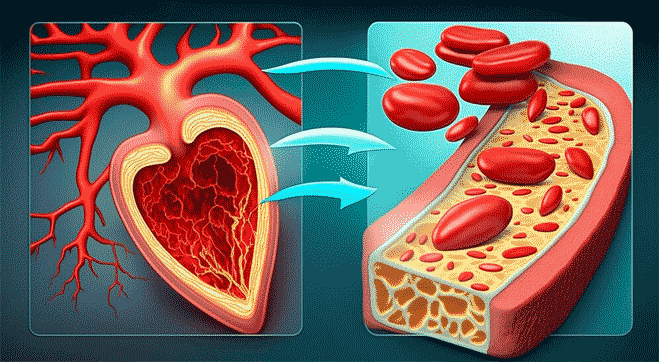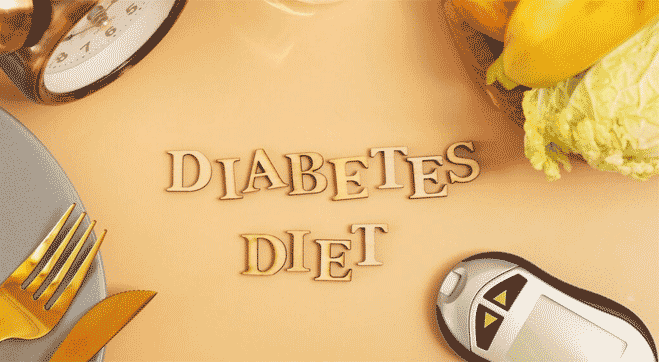What Is Lipid Profile Test?
The lipid test is also known as a cholesterol test or a coronary risk panel. These are both more straightforward names for the test. This test will assist in detecting the levels of good and bad cholesterol and triglycerides (fat) in your blood. This test is helpful in the treatment of harmful lipid levels, as well as for determining your risk of getting cardiovascular disease (CVD), which is an abbreviation for cardiovascular disease.
How The Lipid Test Works
A lipid panel or test measures the level of specific lipids in the blood. triglycerides and cholesterol are essential lipids. lipoprotein particles carry them through the blood. With the lipid test, doctors can find out how much total cholesterol is in these lipoprotein particles and measure it. They also figure out the High-density Lipoprotein Cholesterol (HDL-C) and Low-density Lipoprotein Cholesterol (LDL-C). They are also called good cholesterol and bad cholesterol. This test will also tell you how many triglycerides are in your blood.
What Is Cholesterol?
Cholesterol is an essential kind of fat that the human body requires. Cholesterol is a waxy molecule whose function in regulating the body’s cholesterol level is crucial. They aid in forming the body’s cells’ robust outer membrane. Additionally, digesting bile acids in the gut facilitates the production of vitamin D and some hormones. However, elevated cholesterol levels are also detrimental to our health. It might become a hidden threat that places you in danger and causes various consequences, including stroke, atherosclerosis, heart disease, and blockage or hardening of your arteries..
Types Of Cholesterol
There are three distinct cholesterol types, each serving a unique purpose. A high total cholesterol level, a low good cholesterol level, or a high insufficient cholesterol level may raise the likelihood of heart disease. Cholesterol is generally transported through the blood arteries by proteins known as lipoproteins, which are further classified as low-density lipoprotein and high-density cholesterol.
- LOW-DENSITY LIPOPROTEIN: The low-density lipoprotein is believed to be bad cholesterol since a high amount of LDL may raise the risk of numerous cardiovascular illnesses, such as atherosclerosis
- HIGH-DENSITY CHOLESTEROL: In contrast, HDL is believed to be beneficial since it supports the heart and removes the dangerous LDL. HDL cholesterol acts as a scavenger, picking up excess cholesterol from the bloodstream and transporting it back to the liver for disposal. It helps prevent the buildup of plaque in the arteries, reducing the risk of cardiovascular diseases.
Read More: Boost Your Good Cholesterol: 8 Effective Tips to Increase HDL Levels
The Link between High Cholesterol Levels and Health Problems
Elevated cholesterol levels, especially high levels of LDL cholesterol, can have a profound impact on our health. Here are some key connections:
Cardiovascular Diseases: High levels of LDL cholesterol can increase the risk of developing heart disease, stroke, and coronary artery disease. Plaque accumulation in the arteries limits blood flow and may cause potentially fatal consequences.
Hypertension:High cholesterol levels are frequently linked to high blood pressure, or hypertension, which puts additional stress on the cardiovascular system and raises the risk of heart disease.
Metabolic Syndrome: When cholesterol levels are out of balance, other metabolic abnormalities, like excessive blood sugar, high blood pressure, and extra abdominal fat, are frequently present as well. These elements work together to create the metabolic syndrome, which increases the risk of type 2 diabetes, heart disease, and stroke.
Pancreatitis and Gallstones: Extremely high triglyceride levels, a form of fat that is closely related to cholesterol, can raise the risk of developing pancreatitis (inflammation of the pancreas) and gallstones.
The Relationship Between Lipid Profile Testing and Cholesterol Management
The importance of lipid profile test cannot be overstated when it comes to understanding the importance of lipid profile tests in assessing cholesterol levels and managing cardiovascular health. This test provides a comprehensive analysis of various lipid components, enabling early detection of abnormalities and guiding effective treatment strategies. Read more to know about the relationship between lipid profile testing and cholesterol management
Accurate Assessment of Cholesterol Levels:
- Lipid profile testing provides a comprehensive analysis of an individual’s cholesterol levels, including total cholesterol, LDL cholesterol, HDL cholesterol, and triglycerides.
- It offers precise measurements, enabling healthcare professionals to evaluate the balance between “good” (HDL) and “bad” (LDL) cholesterol.
Regular Monitoring for Treatment Effectiveness:
- It enables healthcare professionals to track changes in cholesterol levels over time, assess treatment impact on LDL cholesterol, and make necessary adjustments.
- This regular monitoring ensures that treatment plans are tailored and optimized to effectively manage cholesterol levels.
Vanguard in Identifying Risks of Cardiovascular Diseases:
- Lipid profile testing serves as a crucial preventive measure in identifying individuals at risk of cardiovascular diseases.
- Elevated LDL cholesterol levels, combined with other risk factors like high blood pressure or diabetes, can significantly increase the likelihood of heart disease.
Proactive Cholesterol Management:
- Regular testing empowers individuals to take charge of their health, make informed lifestyle choices, and proactively manage cholesterol levels.
- By staying vigilant through lipid profile testing, individuals can make timely adjustments to their diet, exercise routines, and medication plans to promote heart health.
How To Maintaining Healthy Lipid Levels
To achieve and maintain healthy lipid levels, it is crucial to understand the significance of lipid profile testing. By undergoing regular lipid profile tests, individuals can assess their cholesterol levels and gain insights into their cardiovascular health. The clinical significance of lipid profile tests lies in their ability to provide a comprehensive analysis of various lipid components.
Tips for achieving and maintaining healthy lipid levels, including diet, exercise, and lifestyle choices.
- Incorporating heart-healthy foods such as fruits, vegetables, whole grains, and lean proteins.
- Engaging in regular physical activity to support healthy lipid profiles.
- Quitting smoking to improve cardiovascular well-being.
- Limiting alcohol consumption to promote healthy lipid levels.
Conclusion
In summary, lipid profile test is an essential component of cholesterol management and provides crucial information about a person’s lipid profile, the efficacy of medication, and their cardiovascular risk. Regular testing allows people to keep track of their lipid profile, analyse the effects of ongoing medicines, and take proactive steps to properly manage their cholesterol by determining their cholesterol levels. Lipid profile testing also enables people and medical professionals to implement personalised preventive methods, thereby encouraging better heart health and decreasing the incidence of cardiovascular problems.










